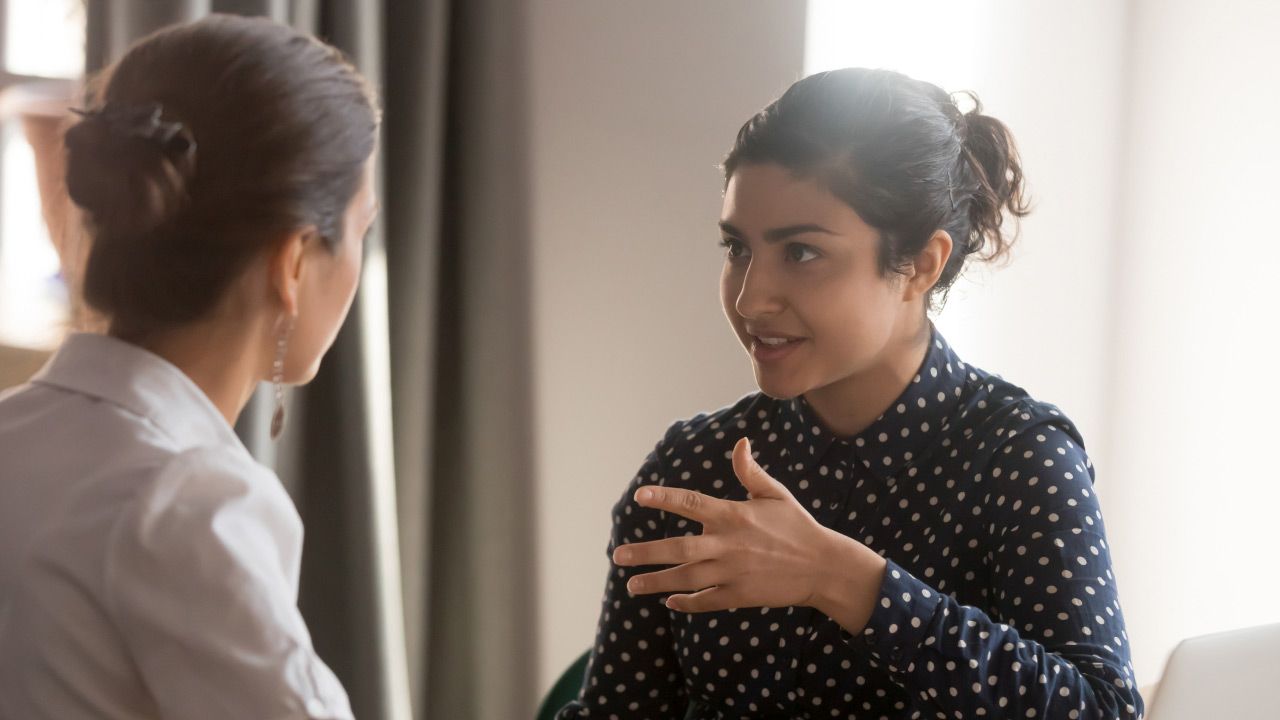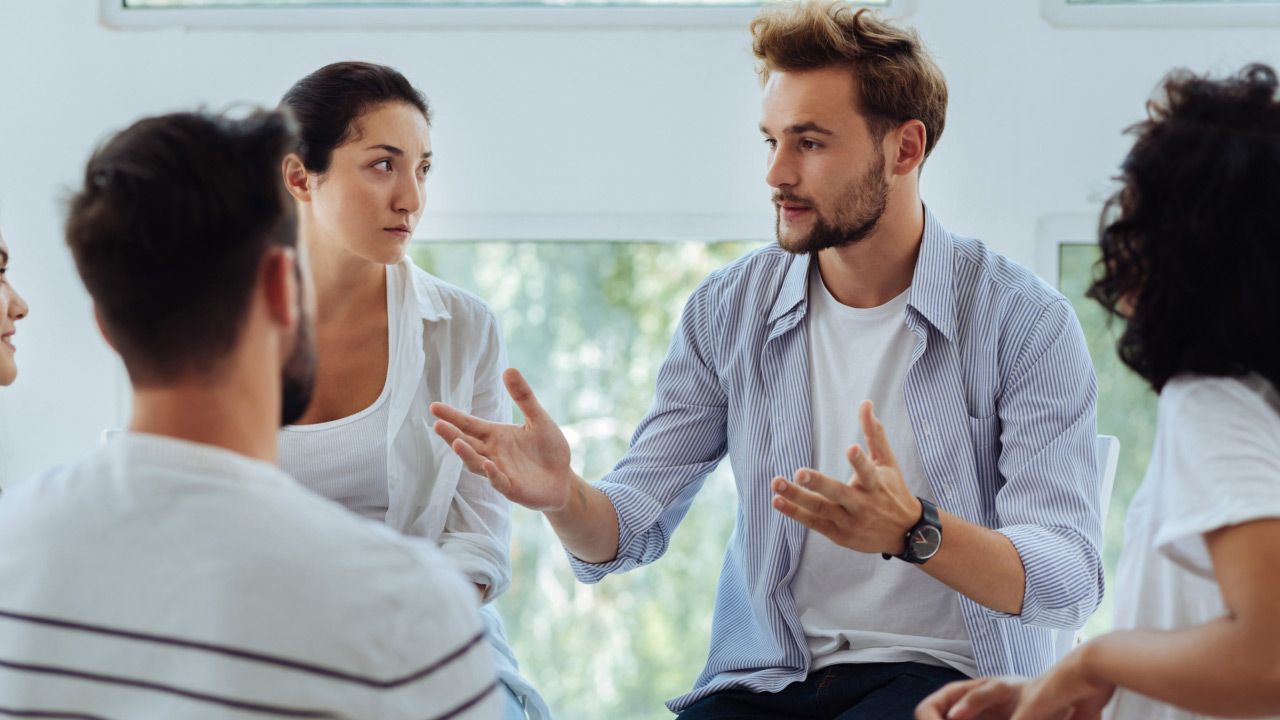Improve Your Social Skills: How to Become More Social
By Julian Lewis • April 23, 2024

Introduction: Embracing Social Growth
In a world where connections matter more than ever, the art of socializing isn't just a skill—it's a crucial element of life. How often have you found yourself at a crossroads, wishing to become more social, yet held back by invisible barriers of anxiety and uncertainty? The journey to enhancing your social skills is much like navigating a complex labyrinth, where every interaction, every moment of active listening, and every shared smile can lead you closer to becoming the social butterfly you aspire to be.
From navigating the nuances of communication skills to mastering the art of making others feel comfortable in your presence, the path to social fluency is rich with opportunities for growth and transformation. Whether you're looking to enrich your social life, build more meaningful friendships, or simply learn how to socialize better in various settings, the journey starts with a willingness to step out of your comfort zone and embrace the possibility of change.
As we embark on this journey together, let's explore practical steps and insights that can guide you toward becoming more confident and capable in your social interactions. Remember, the quest to improve your social skills is not just about making more friends or being the life of the party—it's about enriching your life and the lives of those around you. So, let's start thinking about social growth not as a challenge to dread, but as an adventure to embrace, filled with lessons to learn, stories to share, and connections to cherish.
Join our Newsletter
Transform your career with our personal growth insights. Get one valuable tip right in your inbox every Saturday morning.
Understanding Social Skills: A Foundation
The importance of social skills in personal and professional life
Social skills are the very fabric that connects us in both our personal lives and the professional world. They enable us to navigate complex social landscapes, build meaningful relationships, and achieve success in various endeavors. Possessing great social skills means more than just being able to converse with others; it's about understanding and adapting to the nuances of social interactions, making meaningful connections, and enhancing our social life. In the workplace, good social skills facilitate collaboration, leadership, and conflict resolution. In personal realms, they enrich our relationships and increase our sense of community and belonging.
Identifying your current social skill level
Acknowledging where you currently stand in terms of social skills is the first step towards improvement. This requires a bit of introspection and perhaps feedback from friends or colleagues. Are you someone who naturally draws people in, or do you find socializing to be a source of anxiety? How do you fare with active listening, maintaining eye contact, and reading the room during social events? By identifying your strengths and areas for growth, you can tailor your journey towards becoming more social, focusing on enhancing specific skills that will improve your interactions in both social settings and your broader social life.
How to Become More Social: Starting Steps
Overcoming the fear of the first step
The journey to becoming more social often starts with tackling the initial barrier: fear. Social anxiety can be a formidable opponent, whispering doubts and fabricating worst-case scenarios. Overcoming this fear begins with acknowledging it, then gently pushing against its boundaries. Start with small, manageable social interactions that don't overwhelm you. It could be as simple as initiating a brief conversation with a colleague or complimenting a friend. Each positive experience is a step towards diminishing that fear, proving to yourself that social interactions can be enjoyable and rewarding.
Setting realistic social goals
Embarking on a quest to enhance your social life requires clear, achievable goals. Rather than setting a vague ambition like "I want to be more social," specify what "more social" looks like for you. Is it making one new friend within the next month? Attending a social event every week? By setting realistic social goals, you create a roadmap towards becoming more social, making it easier to track your progress and celebrate your successes. Remember, social proficiency doesn't happen overnight; it's a gradual process fueled by consistent, small victories.

Practice Effective Communication Skills
Listening actively
Active listening is the cornerstone of effective communication. It involves fully concentrating on the speaker, understanding their message, responding thoughtfully, and remembering the conversation. This skill enhances your ability to connect with others, showing them respect and empathy. To practice active listening, focus on the speaker, avoid interrupting, and ask questions to clarify your understanding. This not only enriches your social interactions but also deepens your relationships.
Speaking with clarity and confidence
Clear and confident communication conveys your ideas more effectively and makes a positive impression on your audience. Start by organizing your thoughts before you speak and focus on keeping your message concise and to the point. Confidence in speaking comes from practice and preparation. Consider joining a public speaking group or practicing in front of a mirror to refine your speaking skills. Remember, everyone makes mistakes, and each interaction is an opportunity to improve.
Non-verbal communication cues
Non-verbal cues, such as eye contact, facial expressions, and body language, play a crucial role in communication. These cues can reinforce what you're saying, express your emotions, and help build trust with others. Eye contact, for example, can show confidence and interest in the conversation, while your posture can convey openness and attentiveness. Being mindful of your non-verbal signals, as well as interpreting those of others, enhances your overall communication skills and helps you become more socially adept.
Try to Make Others Feel Comfortable and Good
The power of empathy
Empathy is a powerful tool in making others feel understood and valued. It involves putting yourself in someone else's shoes and viewing the world from their perspective. When you practice empathy in social interactions, you not only make others feel comfortable but also build deeper connections. This can be as simple as acknowledging someone's feelings with a statement like, "That sounds really challenging; how did that make you feel?" Demonstrating genuine interest and concern can significantly impact the quality of your interactions and strengthen your social bonds.
Small acts of kindness
Never underestimate the impact of small acts of kindness in your daily interactions. Whether it's a warm smile, a sincere compliment, or a small favor, these gestures can go a long way in making someone's day better and making them feel good. These acts contribute to a positive social atmosphere and can transform a mere acquaintance into a meaningful friendship. By practicing kindness, you not only improve others' lives but also enrich your own social experiences, making you a magnet for positive interactions and relationships.

How to Socialize Better in Various Settings
Socializing in professional settings
Navigating social interactions in a professional setting requires a blend of active listening, clear communication, and respect for boundaries. Start by engaging colleagues in conversation topics relevant to your work environment or current events, which can serve as neutral ground. Building rapport through shared work experiences or goals can foster a sense of community and teamwork. Remember, professional settings often value succinctness and clarity, so practicing these communication skills can make your interactions more effective and pleasant. Networking events provide a prime opportunity to practice these skills, where the goal is to expand your professional circle in a way that feels genuine and reciprocal.
Socializing in casual settings
In more relaxed environments, the key to better socialization lies in being open and approachable. Casual settings often offer more flexibility in conversation topics and interaction styles, allowing for a broader range of subjects, including hobbies, personal interests, and light-hearted anecdotes. Making eye contact, using open body language, and showing genuine interest in others' stories can make you more approachable. Additionally, being mindful of non-verbal cues and adjusting your engagement based on the feedback received ensures that interactions remain comfortable and enjoyable for everyone involved. Whether at a party, a community event, or a casual gathering with friends, practicing empathy and kindness will always enhance your social experiences.
Join our Newsletter
Transform your career with our personal growth insights. Get one valuable tip right in your inbox every Saturday morning.
Always Find Time to Recharge
Understanding the need for downtime
In the pursuit of becoming more social and enhancing our social skills, it’s crucial not to overlook the importance of downtime. Just as our bodies need rest after physical exertion, our minds require breaks from continuous social stimulation to recharge and process experiences. Recognizing the signs of social fatigue—such as feeling drained after interactions or dreading upcoming social events—signals it's time to step back and allow yourself some personal time. This downtime is not a step back from your goal to become more social but an essential part of maintaining your mental and emotional well-being.
Balancing social activities with personal time
Achieving a balance between social activities and personal time is key to a healthy social life. It involves setting boundaries for yourself and others, ensuring that you're not overcommitting to social engagements at the expense of your own peace and recuperation. Start by scheduling regular intervals of personal time just as you would a social event, prioritizing activities that rejuvenate you—be it reading, a hobby, or simply doing nothing. Remember, a well-rested person is more likely to enjoy and benefit from social interactions than someone running on empty. Balancing these aspects of life leads to more meaningful social experiences and a more fulfilling life overall.

How to Improve Your Social Skills Through Feedback
Seeking constructive feedback
One effective way to enhance your social skills is by actively seeking constructive feedback from those you trust. This can be friends, family, or even colleagues who have your best interests at heart. Approach them with specific questions about your interaction style, such as, "How do you feel about our conversations?" or "Do you think I listen well?" Honest feedback can provide you with insights that are not always visible from your perspective, offering you valuable information on areas that need improvement.
Reflecting on feedback and making adjustments
After receiving feedback, take the time to reflect on it without judgment. Consider the areas where you excel and those where there is room for improvement. Reflection is a powerful tool for personal growth and requires an open mind and a willingness to change. Use this feedback to set specific goals for yourself, such as improving your active listening skills or being more mindful of non-verbal cues in conversations. Practice these adjustments in your daily interactions and continue to seek feedback to monitor your progress. Remember, improving social skills is a continuous journey, and feedback is the compass that guides you towards becoming a more effective communicator and a better friend, colleague, or partner.
Embracing New Social Opportunities
Joining clubs or groups
One of the most rewarding ways to expand your social circle and enhance your social skills is by joining clubs or groups that align with your interests. Whether it's a book club, a sports team, a language exchange group, or a hobby-based community, these settings provide structured social opportunities. They allow you to meet new people in a more relaxed and interest-focused environment. Engaging in activities you enjoy not only makes the process of socializing more natural but also gives you common ground with others, making conversations flow more easily. As you become a regular participant, your confidence in social settings will grow, helping you evolve into a social butterfly.
Volunteering for social causes
Volunteering offers a unique avenue to socialize while making a positive impact on your community. It brings together people from diverse backgrounds united by a common goal. This environment fosters a sense of camaraderie and mutual respect, providing a solid foundation for building new friendships. Moreover, working towards a cause you're passionate about can be incredibly fulfilling and can naturally enhance your social interactions. Volunteering not only broadens your understanding of the world and the people in it but also provides ample opportunities to practice and improve your social skills in a meaningful context.

Conclusion: The Journey to Becoming More Social
Summarizing key takeaways
Our journey through enhancing social skills emphasizes understanding and developing these crucial abilities, starting from acknowledging their importance in every aspect of life to actively seeking and embracing opportunities for growth. Key takeaways include the significance of effective communication, the power of empathy and kindness, and the balance between social engagement and personal downtime. Each step, from overcoming initial fears to seeking feedback and seizing new opportunities, is integral to becoming more social and confident in various settings.
Encouraging continuous improvement
Becoming more social is a continuous journey, one that flourishes with persistence and a positive outlook. Remember, improvement doesn’t happen overnight, but with each small step, you grow closer to becoming the social butterfly you aspire to be. Embrace every opportunity, learn from each interaction, and never lose hope in the process of personal growth. The path to enhancing your social skills is paved with challenges, but it's also filled with moments of joy, connection, and discovery. Keep moving forward, and let the journey itself inspire and transform you.
Read more about: Self Advocacy, Well-being, Healthy Relationships
About Julian Lewis
Julian Lewis is a driven and accomplished professional with a passion for driving positive change in the business world. He is the co-founder and COO at Zella Life.
His own experience as a professional of color in a Fortune 500 company led him to discover the limitations for advancement that many professionals like himself face. Determined to reach his full potential, Julian became an established business coach and entrepreneur, committed to supporting others in their pursuit of personal and professional growth.
Today, Julian is a recognized corporate trainer, coach, and leader, known for his ability to leverage real-life experiences and evidence-based methodologies to affect positive change within individuals and organizations. As the leader of Zella Life's coaching division, he is dedicated to empowering individuals and businesses to achieve their full potential.